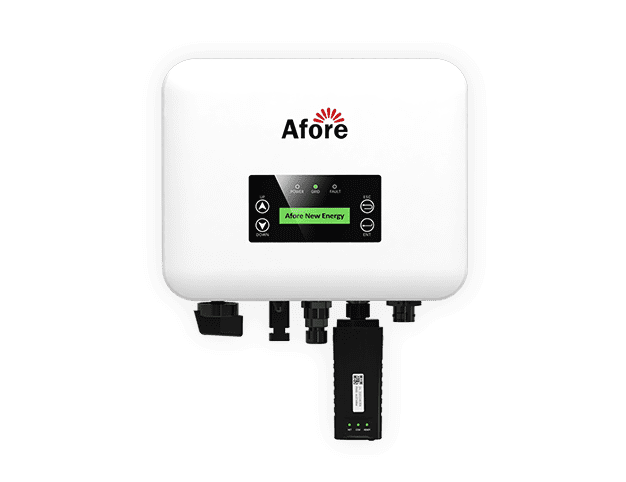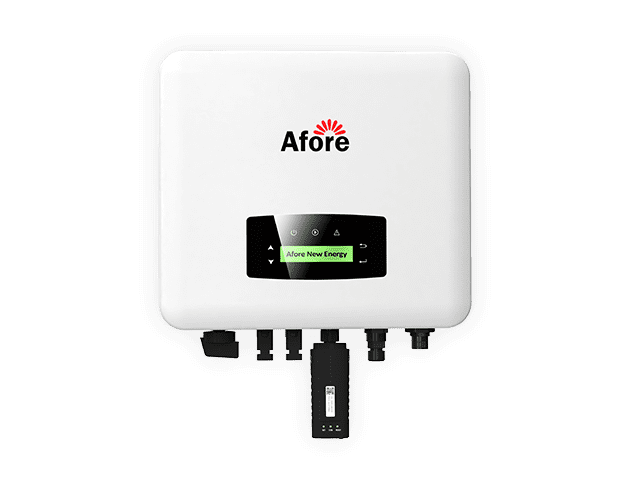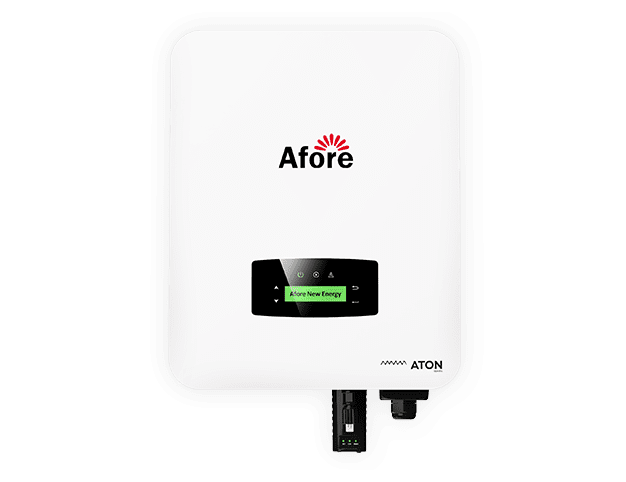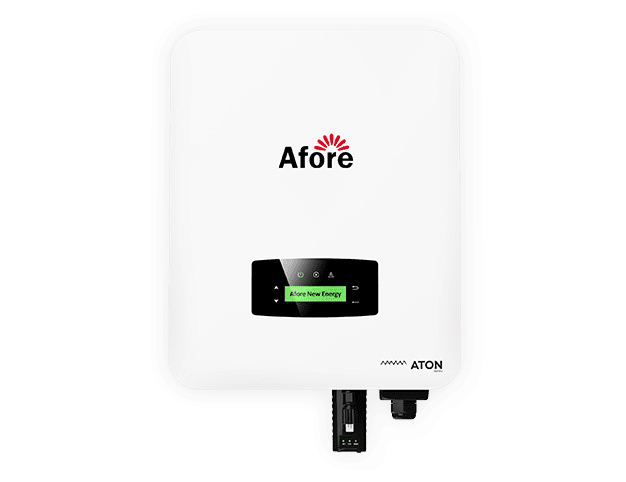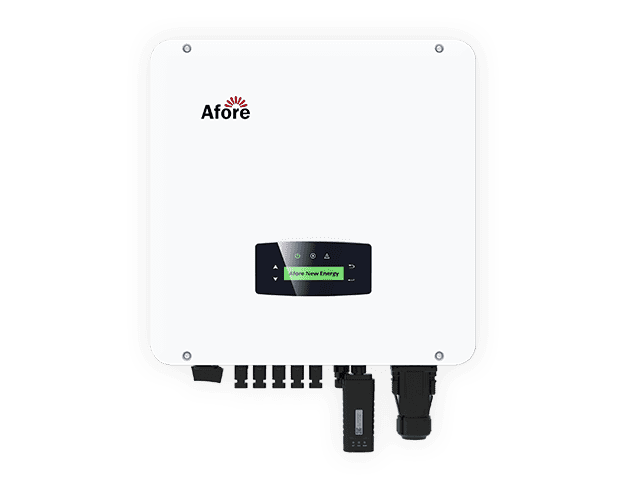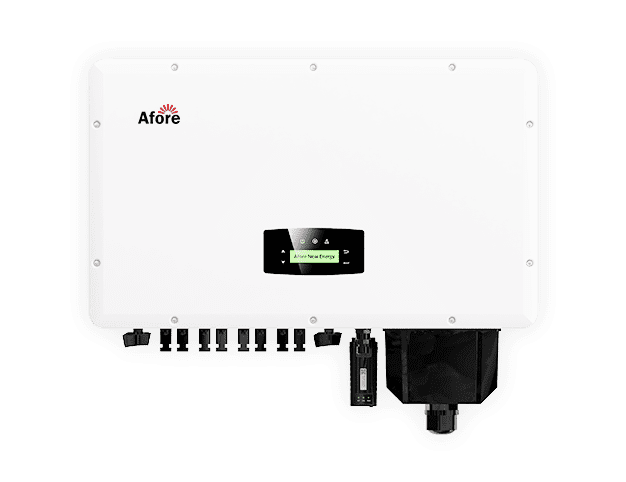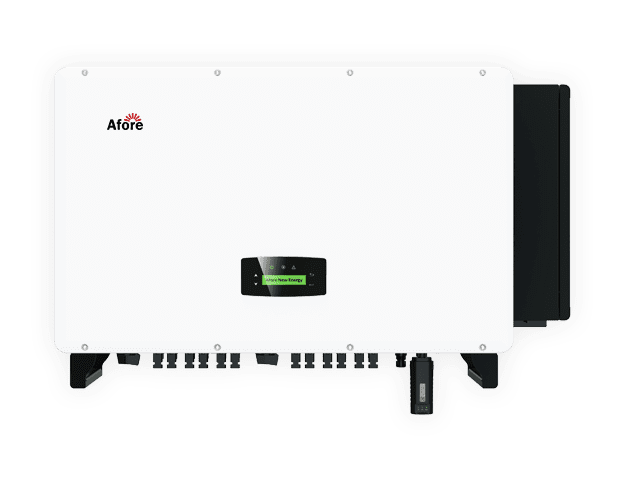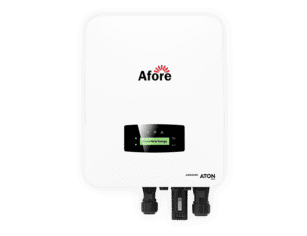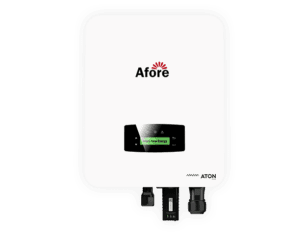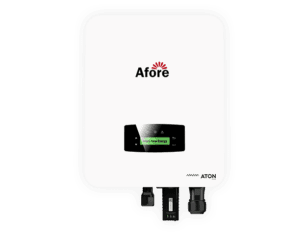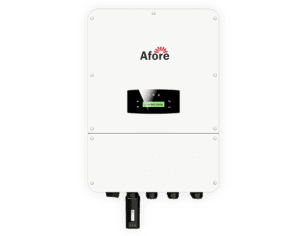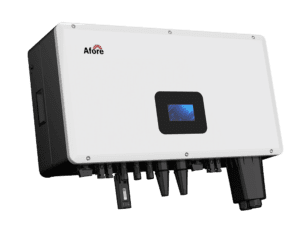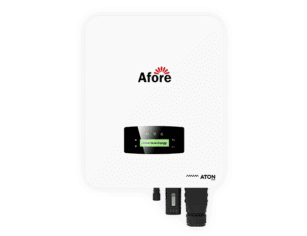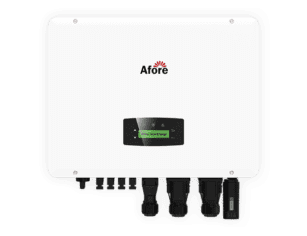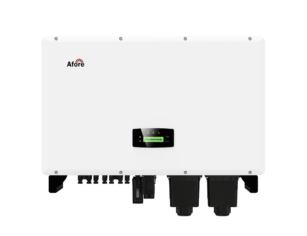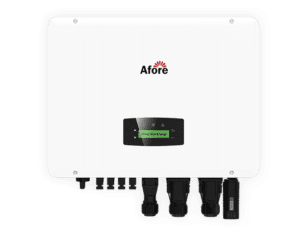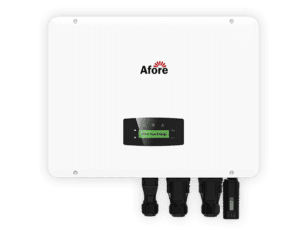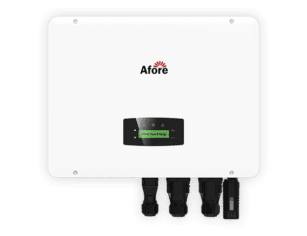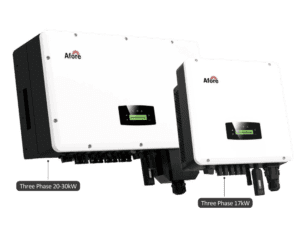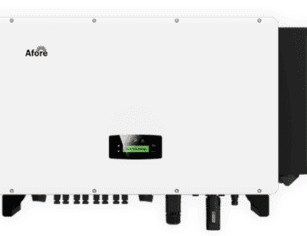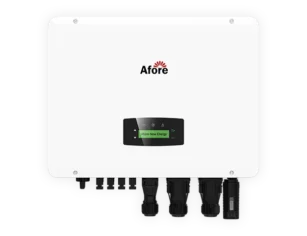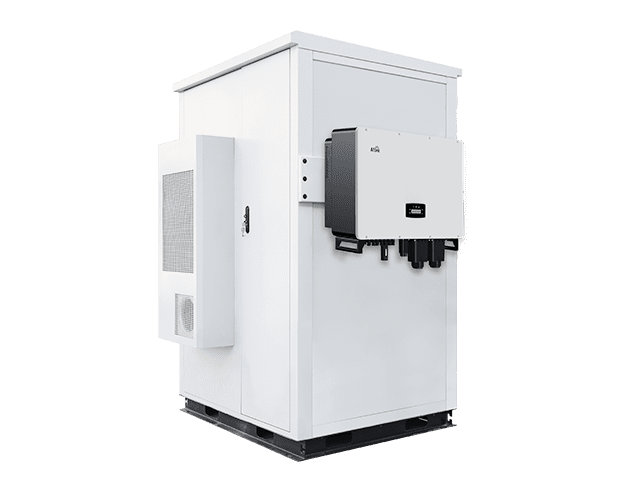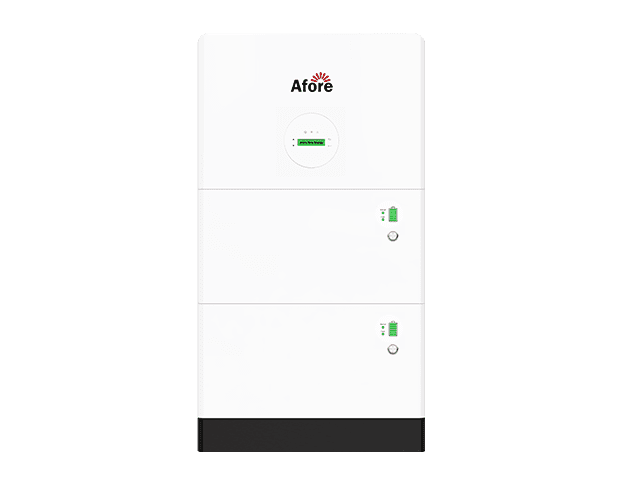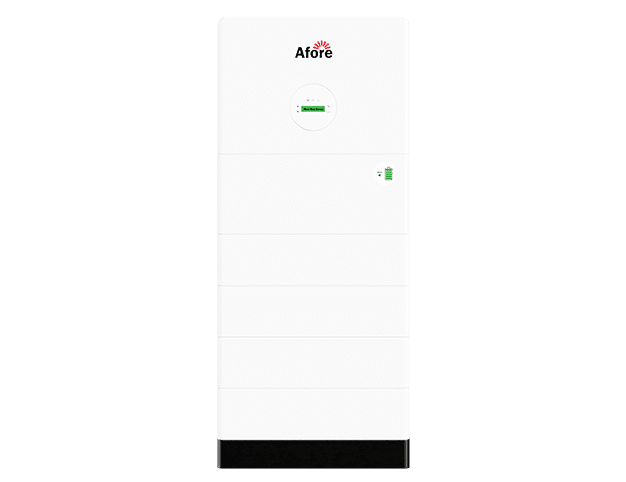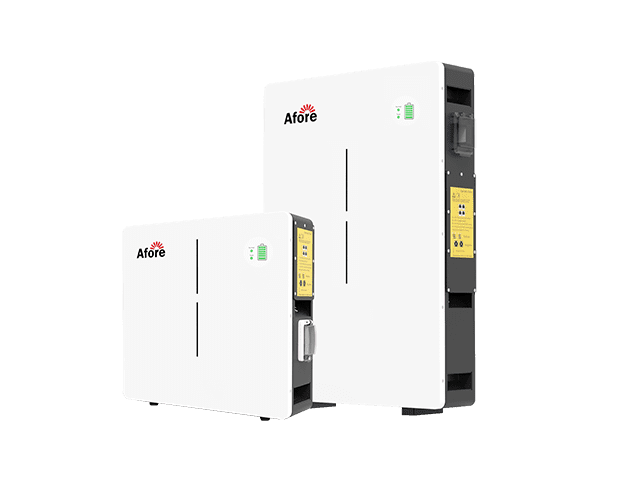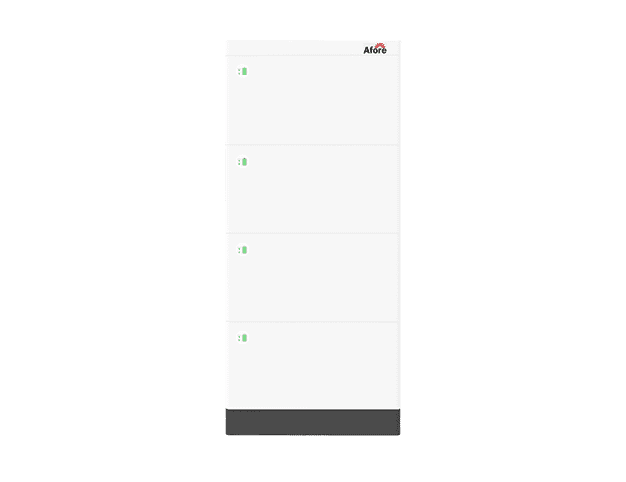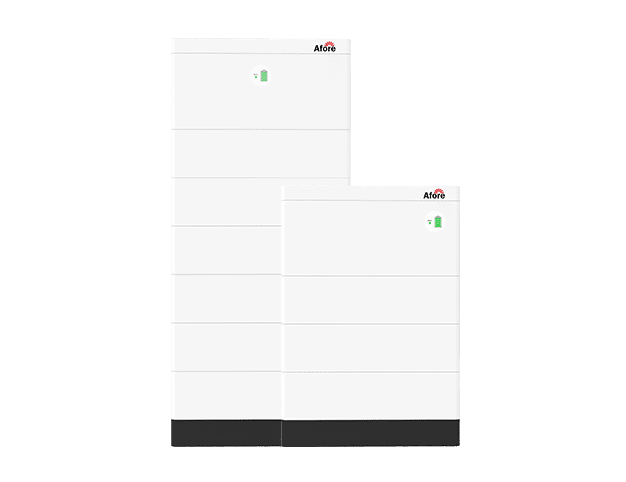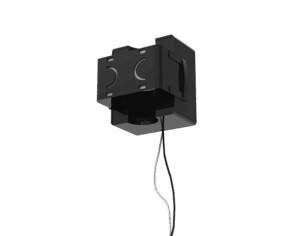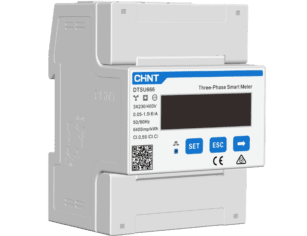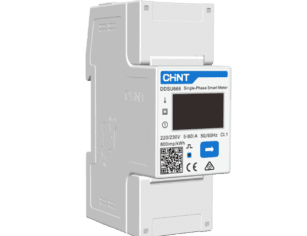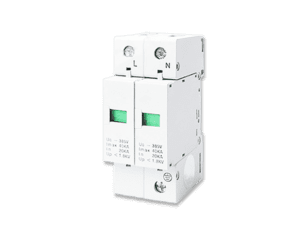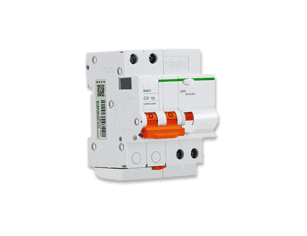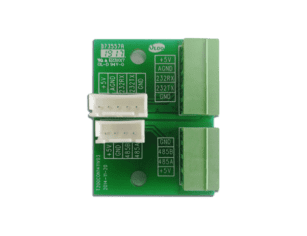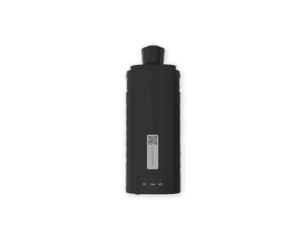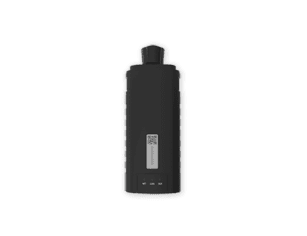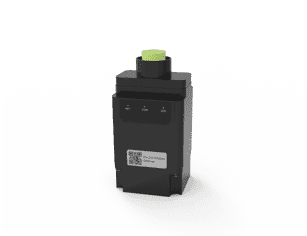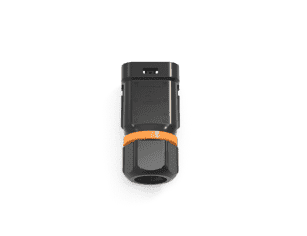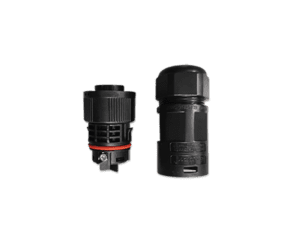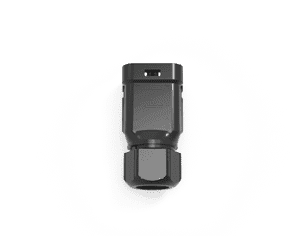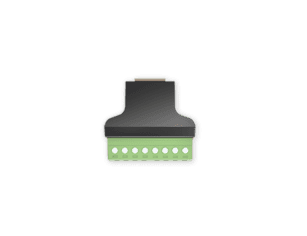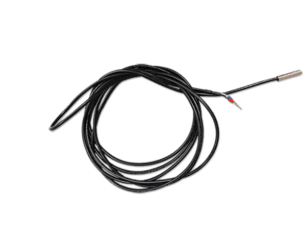What is the Difference Between an Inverter and a Hybrid Inverter: An In-Depth Analysis and Selection Guide

Table of Contents
In this era of innovation and change, inverter and hybrid inverter are like two outstanding partner in the field of power conversion, each possessing unique charm and value. They not only contribute to our daily life, but also play an irreplaceable role in industrial production, renewable energy utilization and many other fields. Today, I would like to discuss what is the difference between an inverter and a hybrid inverter with you with passion and genuine care, and I hope this guide will be a warm companion for you when choosing power conversion equipment.
Types, characteristics and application analysis of inverters and hybrid inverters
What is the difference between an inverter and a hybrid inverter? I want to take you into a world that is both mysterious and practical – the inverter. Now I’m going to show you its types and features.
Inverter
When the sunlight pours on the solar panels, those tiny photons, like elves endowed with life, start jumping happily inside the panels, converting the light energy into DC electricity. The Pure Inverter is like a guide for these elves, it receives the DC power and carries out a silent power conversion ceremony through the sophisticated electronic components inside.
Pure Inverter’s structure is simple and elegant, without excessive redundancy, it focuses on the core task of converting DC power to AC power. This focus allow it to maintain high efficiency and stability in the power conversion process. And it can accurately control every detail of the conversion process to ensure that the output AC power is of superior quality, stable and reliable.
In some scenarios where the power quality is not particularly demanding, or where only simple power conversion is required, the pure inverter is undoubtedly an extremely cost-effective choice. It does not require too many additional functions or complex control systems, and can output AC power stably by simply plugging in the power supply and load. This simple and straightforward operation make the inverter a good match for a variety of applications.
Moreover, the relatively affordable price of the inverter makes it an ideal choice for those who have a limited budget but need a stable power supply.
Of course, inverters have their limitation. It may not be able to cope with some occasion that require complex power management or intelligent control.
Hybrid inverter
On a sunny day, solar panels are busy collecting sunlight and converting it into DC electricity. This is when the hybrid inverter efficiently converts this DC power into AC power for our household appliances. But that’s not all it can do!
When night fall, or when it’s cloudy or rainy and the solar power is not enough, the hybrid inverter will show its other specialty – automatically switching the backup power.
Once it detects that there is not enough solar power to meet demand, it quickly and accurately switches to a backup power source, such as a battery bank or utility power, ensuring that our power supply is not interrupted.
What’s even more impressive is that the hybrid inverter also provides an uninterrupted power supply in the event of a grid failure. It’s like installing an invisible “safety net” for our home power system. It ensures that our power needs are met and our lives are not disrupted, no matter what happens in the outside world.
The flexibility and versatility of the hybrid inverter allow it to maneuver through a variety of complex and changing power demand environments. It is not just a simple power conversion device, but also an intelligent power management system. It can automatically adjust the working mode and optimize the power distribution according to our actual needs, making our power use more efficient and convenient.
Moreover, with the continuous development of technology, hybrid inverter is still evolving. It is beginning to incorporate more intelligent element, such as remote monitoring, data analysis and other function, so that we can more easily manage and optimize the use of home power.

Performance comparison between inverters and hybrid inverters
What is the difference between an inverter and a hybrid inverter? Let’s take a closer look at conversion efficiency, functional versatility, and stability and reliability.
Conversion efficiency and energy utilization
The inverter, focusing on power conversion, carefully sculpts every circuit detail by continuously optimizing the internal circuit design. It constantly challenges the limit of conversion efficiency, and each subtle adjustment is designed to allow less energy loss and more energy conversion in the conversion process.
As for the hybrid inverter, it is more like an all-round energy management master. It not only inherits the high-efficiency conversion capability of pure inverters, but also integrates intelligent energy management strategies on top of it, which can precisely dispatch various energy resources to maximize their effectiveness.
Functional diversity and scalability
In the world of power equipment, hybrid inverters and inverters are like two partners with different personalities, each with different charms and specialties. When it comes to versatility and scalability, hybrid inverters are like versatile artists who bring us endless surprises and possibilities.
Hybrid inverter, the master of power management, is not only proficient in the basic power conversion to meet the power needs of our daily life, but also in battery charging management, it is able to intelligently adjust the charging strategy according to the battery’s power status, which not only ensures the battery’s healthy lifespan but also avoids the waste of energy. In terms of grid synchronization, it can also seamlessly connect with the public grid to ensure that our power supply is both stable and reliable. The remote monitoring function allows us to keep track of our home’s power usage, wherever we are, for real-time monitoring and management.
In contrast, the inverter is more like a dedicated and simple craftsman, its main function is to focus on the power conversion itself. Although the function is relatively single, it is this focus and purity that allows it to achieve the ultimate in power conversion efficiency. For those who have a basic need for power conversion but don’t need too many additional functions, the pure inverter is undoubtedly a cost-effective and efficient choice.
Everyone has different needs for power equipment. Some people may attach more importance to the multifunctionality and intelligence of the equipment, hoping that it can bring them more convenience and surprise; while others may pay more attention to the cost-effectiveness and practicality of the equipment, thinking that as long as it can satisfy the basic needs of power conversion, it is enough. Therefore, when choosing power equipment, we still have to weigh and choose according to our actual needs and budget. These are the differences between inverters and hybrid inverters.
Application scenarios and requirements analysis
Inverters and hybrid inverters have their own specialties, and they play to their strengths in different application scenarios.
Home and small business scenarios
In home and small business scenarios, the power requirements may seem simple, but in reality there is a lot to learn. For most home users and small commercial users, what they seek is the efficiency, stability and economy of power conversion.
At this time, the inverter is like a simple and unassuming old friend, always behind the scenes to provide us with stable and reliable power conversion services. With its efficient and stable performance, it has become the first choice for many home and small commercial users.
However, in this age of personalization, there are always some families or small commercial users who have more unique power needs. For example, some households may want to automatically switch to a backup power source or the grid when solar power is insufficient to ensure that their appliances don’t suddenly go on strike, while some small commercial users may be more concerned about how to better manage their energy costs, and may want to remotely monitor their power usage to develop a more They want to monitor power usage remotely in order to make a more reasonable power plan.
The hybrid inverter is a versatile magician that can meet the diverse needs of these users.
Industrial and large-scale projects
The hybrid inverter’s intelligent features are well versed in data analytics, which can monitor power usage and analyze the distribution of energy consumption in real time, providing users with a comprehensive power management solution. Through remote monitoring and data analysis functions, enterprises can clearly understand the power consumption of each production link, so as to formulate a more scientific and reasonable power consumption plan. In this way, not only can it effectively reduce energy costs, but also improve productivity, allowing enterprises to occupy a more favorable position in the fierce market competition.
What is even more amazing is the high reliability of hybrid inverters. In industry and large-scale projects, the stability of power equipment is crucial. Once the equipment fails, it will not only affect the production schedule, but also may pose a threat to the safety of personnel and equipment. The hybrid inverter, with its excellent quality and strict quality control system, ensures its stable operation in various harsh environments. Whether in hot, humid or dusty environments, hybrid inverters are able to hold their ground and provide constant power support for the production process of enterprises.
Of course, choosing hybrid inverters does not mean giving up on inverters. In some scenarios where the efficiency of power conversion is extremely important, inverters can still be used to their unique advantage. But overall, in industrial and large-scale projects, the versatility, intelligence and high reliability of hybrid inverters undoubtedly make them the first choice for more companies.

Selection guide and practical advice
Faced with a wide range of inverter and hybrid inverter products, how should we choose? Below are some practical buying guides and suggestions for your reference.
How to choose the right inverter
First of all, we need to be clear about our power needs and budget range. We need to know how much power supply we need for our home or commercial premises every day? Do they need to automatically switch to a backup power source when power is insufficient? Is there a need to monitor power usage remotely? All these questions are the key factors we need to consider when choosing an inverter.
Next, we need to choose the right power and type according to the actual needs. Inverters and hybrid inverters have their own merits. Inverters focus on power conversion, which is more cost-effective and suitable for scenarios with simpler power requirements, while hybrid inverters integrate a variety of functions, such as battery charging management, grid synchronization, remote monitoring, etc., which is suitable for scenarios with higher requirements for power management. We need to choose the most suitable type according to our actual needs.
Of course, when choosing an inverter, we also need to pay attention to the conversion efficiency, stability, reliability and after-sales service of the product. Conversion efficiency determines the energy utilization of the inverter, high conversion efficiency means less energy waste; stability is related to the continuous operation of the inverter, a frequent failure of the inverter will undoubtedly bring us a lot of trouble; and reliability refers to the inverter’s ability to adapt to a variety of environments, including temperature, humidity, dust, and other factors on the inverter’s impact; after-sales service is an important guarantee for us after the purchase of the After-sales service is an important guarantee after we buy the inverter, a good after-sales service team can provide timely help when we encounter problems.
Before making a choice, we can make a more informed choice by comparing the performance parameters and user evaluation of products of different brands, models and prices. We need to check the product’s hardware configuration, software features, user reputation and other aspects of information. In this process, we can also refer to some professional review articles or videos to get a more comprehensive understanding.
Precautions
In the journey of shopping for an inverter, we have to be alert to every potential trap like a detective. After all, inverters are no gadgets, it’s about the power supply of our home or commercial premises, and if we choose the wrong one, the consequences can be unimaginable. Therefore, today I’d like to share with you my “inverter purchase to avoid pitfalls guide”, I hope to help you avoid those hidden “traps”.
First of all, do not blindly pursue low-priced products and ignore product quality and after-sales service. In the market, there are always some unscrupulous merchants will use the low price strategy to attract consumers, but often the quality of these low-priced products and after-sales service are greatly reduced. In the purchase, be sure to carefully check the product specifications, user reviews and after-sales service policy, to ensure that they buy is value for money products.
Secondly, do not believe in some exaggerated publicity and ignore the actual performance of the product and the use of the effect. Some merchants in order to attract customers, will exaggerate the performance of the product and the use of the effect, and even use some false data to mislead consumers. Therefore, in the purchase, we must keep a clear head, multiple comparisons of different brands and models of product performance parameters, view professional review articles or videos, and even to the product has been used to consult the user experience.
Furthermore, in the process of installation and use, we must follow the relevant safety standards and operating procedures to ensure personal and equipment safety. As a kind of high-voltage equipment, inverters are likely to cause safety accidents if they are not installed or used properly. Therefore, before installation, we must carefully read the product manual and safety specifications to ensure that we understand and master the correct installation and use methods. If you are not sure how to operate it, it is best to ask a professional electrician or technician to do the installation and commissioning.

Conclusion
Inverters and hybrid inverters, the two leaders in the field of power conversion, each shines with unique light and is suitable for different scenarios and needs. What is the difference between an inverter and a hybrid inverter? When purchasing, we should not only rationally analyze our actual needs, budget range, and product performance, but also make a wise choice with the infinite longing and love for a better life.
Every choice is like a spiritual dialog, and we have established a deep emotional bond with inverters and hybrid inverters. They are not only our right-hand man in life, but also our partners in the pursuit of green, smart, and convenient life.
Meanwhile, with the continuous progress of technology and the booming market, we firmly believe that more efficient, intelligent, and reliable inverter and hybrid inverter products will spring up in the future. They will be like a bright pearl, dotted in every corner of our lives, providing us with more convenient, economical, and environmentally friendly power solutions.
Let’s look forward to and embrace this dynamic and innovative green energy era! It is not only a technological innovation, but also a spiritual awakening, an unlimited desire and pursuit of a better life. In this era, inverters and hybrid inverters will become our most reliable partners, accompanying us through every bright and warm moment.




